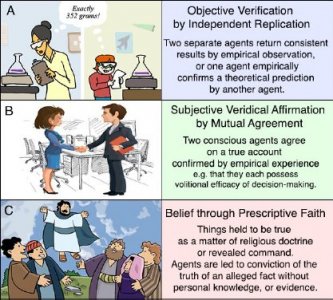Paco Dennis
SF VIP
- Location
- Mid-Missouri
In archaic times, man saw the world as the intersection of two dimensions: the sacred and the profane. The sacred was the plane of forms, archetypes, and categories. The plane of the profane contained all the random accidents of life.
For archaic man, “an object or an act becomes real only insofar as it imitates or repeats an archetype. Thus, reality is acquired solely through repetition or participation; everything which lacks an exemplary model is ‘meaningless.’ i.e., it lacks reality” (Mircea Eliade, The Myth of the Eternal Return).
It was through the technique of repetition or imitation that a concrete, otherwise profane action became universal and thus sacred for primitive man. By identifying with a myth or an archetype, man participated in ultimate reality and entered the plane of the gods, of life everlasting. He strove to escape the transitory reality of individual life, full of random and meaningless particularities – and to connect with the universal patterns of human life. For archaic man, these patterns were best captured by myths and legends. Thus, he strove to participate in these universal patterns through aligning his own life to them as closely as he could manage.
For archaic man, “an object or an act becomes real only insofar as it imitates or repeats an archetype. Thus, reality is acquired solely through repetition or participation; everything which lacks an exemplary model is ‘meaningless.’ i.e., it lacks reality” (Mircea Eliade, The Myth of the Eternal Return).
It was through the technique of repetition or imitation that a concrete, otherwise profane action became universal and thus sacred for primitive man. By identifying with a myth or an archetype, man participated in ultimate reality and entered the plane of the gods, of life everlasting. He strove to escape the transitory reality of individual life, full of random and meaningless particularities – and to connect with the universal patterns of human life. For archaic man, these patterns were best captured by myths and legends. Thus, he strove to participate in these universal patterns through aligning his own life to them as closely as he could manage.


